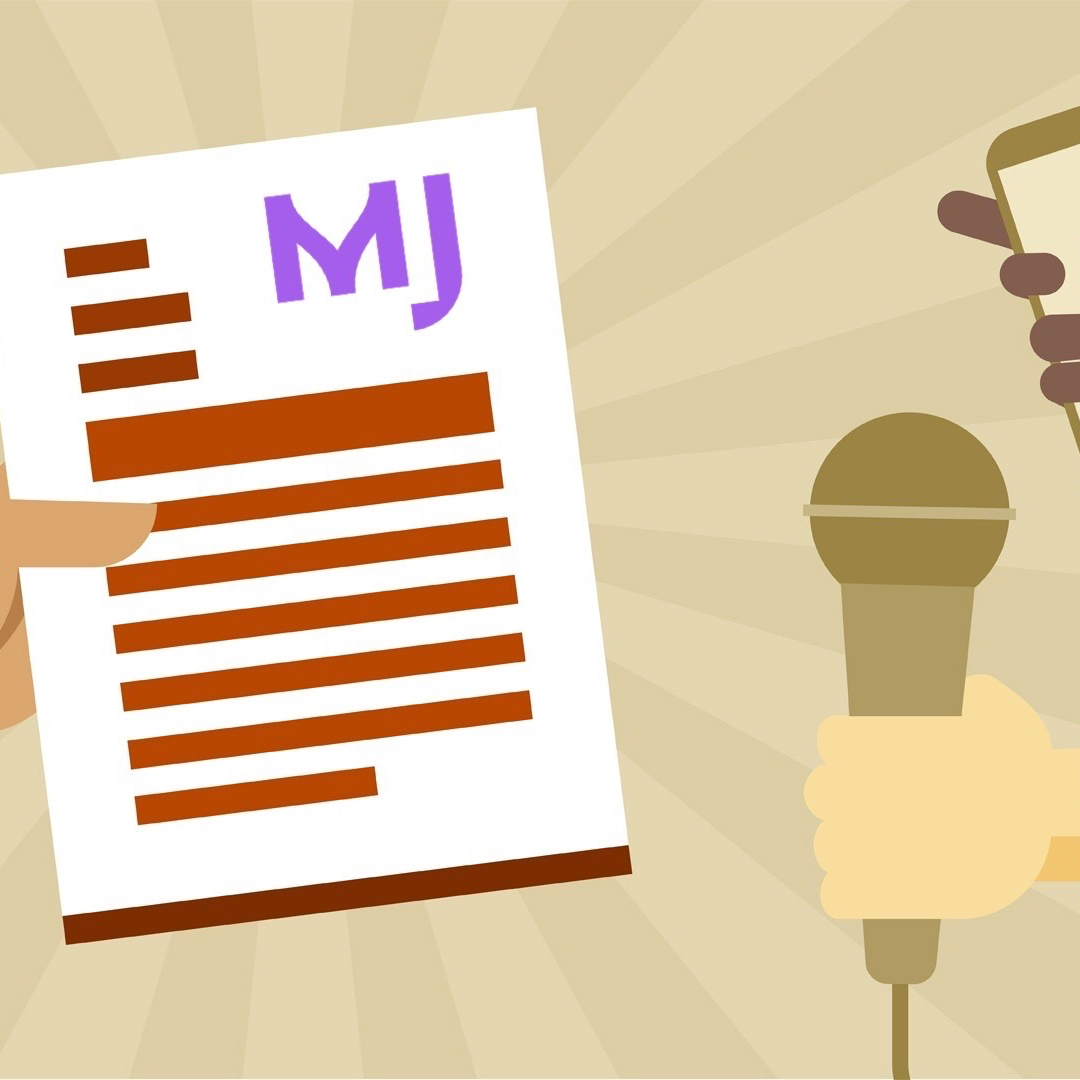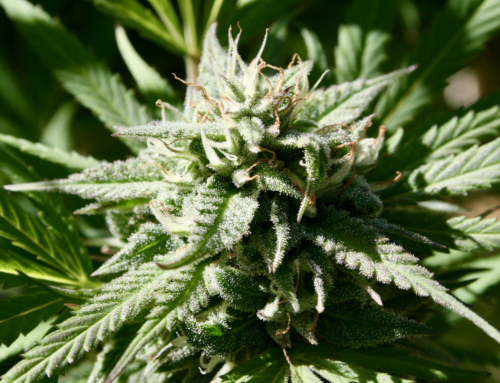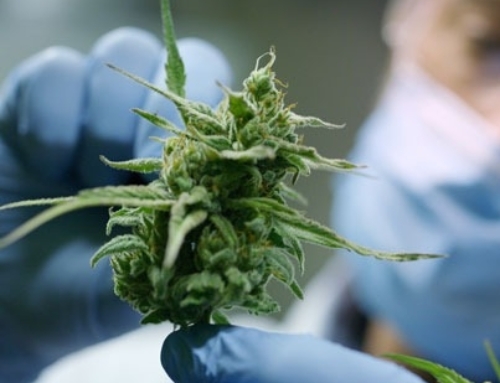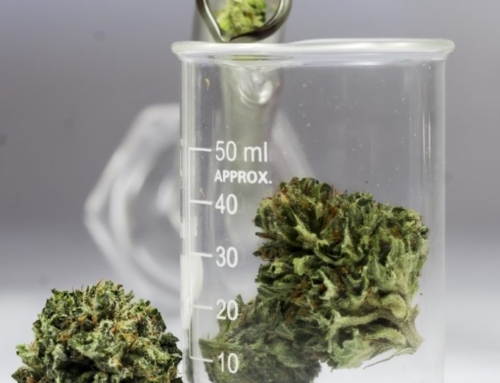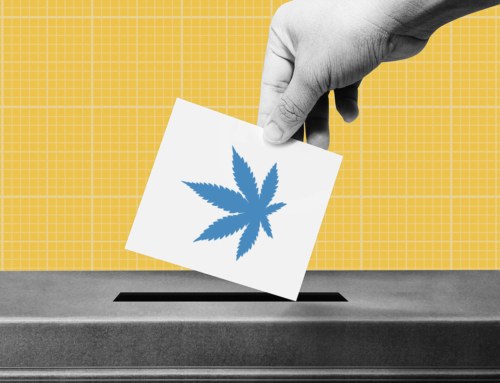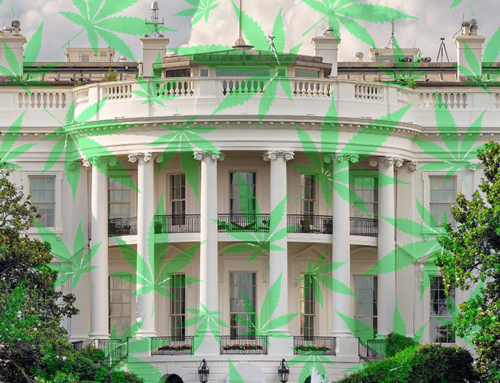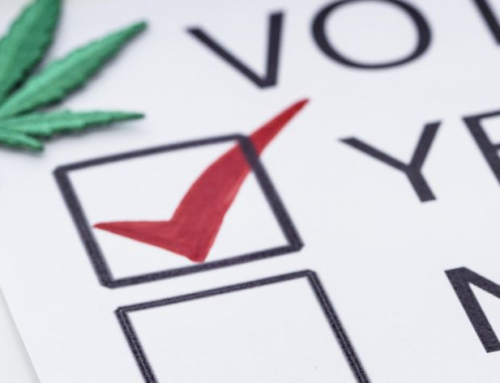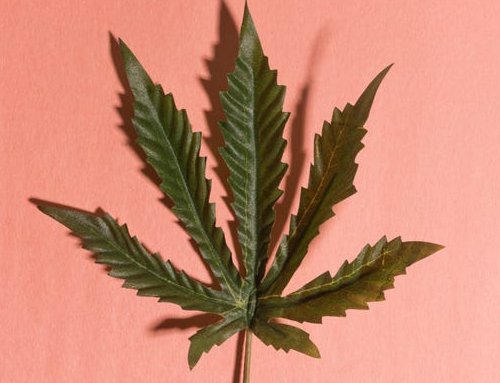US Senator Kamala Harris, chosen Tuesday to be former vice president Joe Biden’s running mate, has a track record on marijuana policy that has evolved significantly over the course of her career. Though she coauthored an official voter guide argument opposing a California cannabis legalization measure as a prosecutor in 2010 and laughed in the face of a reporter who asked her about the issue in 2014, she went on to sponsor legislation to federally deschedule marijuana in 2019.
It remains to be seen whether she will push Biden in the same direction, as the former vice president has maintained opposition to ending marijuana prohibition, despite supermajority support among Democrats.
While Harris, a former attorney general of California, made marijuana reform a major component of her criminal justice platform when she ran in the 2020 Democratic primary, she’s been less vocal about the issue since dropping out in December 2019.
Convincing Biden to come around seems like a steep task in any case. Some advocates suspect that the Democratic National Committee’s platform committee voted against an amendment to add legalization as a 2020 party plank specifically because it’s at odds with the presumptive nominee’s agenda. Biden has drawn the line at decriminalizing marijuana possession, expunging past convictions, modest federal rescheduling, medical cannabis legalization, and letting states set their own policies.
But it remains the case that Harris is the chief Senate sponsor of the Marijuana Opportunity, Reinvestment and Expungement (MORE) Act — a comprehensive piece of legalization legislation that includes various social equity and restorative justice provisions. Advocates will be watching to see if she continues to advocate for the reform move as she’s on-boarded to the Biden campaign.
The senator indicated in July that she doesn’t plan to push the presumptive presidential nominee on the issue.
Here’s a deeper look at where Harris stands on marijuana:
Legislation And Policy Actions
Harris’s most notable contribution with respect to cannabis reform legislation is her sponsorship of the MORE Act.
The senator first came out in support of legalization in 2018, adding her name to a different far-reaching bill introduced by US Senator Cory Booker. The legislation, the Marijuana Justice Act, would remove cannabis from the list of federally banned substances and also penalize states where marijuana laws are enforced disproportionately against people of color. She also cosponsored the 2019 version of the bill.
Beyond the MORE Act and Marijuana Justice Act, Harris has also co-sponsored the SAFE Banking Act, which would protect banks that work with marijuana businesses from federal punishment.
The senator also sponsored bills aimed at repairing land in California that’s been impacted by illicit cannabis grows and another piece of legislation that would protect people with drug convictions from losing public housing.
Additionally, Harris signed a letter alongside US Senator Orrin Hatch that called on the Justice Department to stop blocking federal research into medical cannabis. In a separate sign-on letter, she joined her colleagues in requesting that lawmakers include protections for legal cannabis states in a spending bill.
Separately, an analysis by the Washington Free Beacon determined that at least 1,560 people were sent to California state prisons for marijuana-related offenses during Harris’s tenure as attorney general.
Most Recent Comments and Actions Post-Presidential Campaign
During a Senate Judiciary Committee hearing in June, Harris discussed how a Black man incarcerated over a marijuana offense died after contracting coronavirus. She stated that the case illustrated that “we have two systems of justice in America” based on race.
She and US Representative Hakeem Jeffries made a similar point in a letter to Attorney General William Barr that month.
The senator and 43 other members of Congress also urged the Justice Department to investigate the death of 26-year-old Breonna Taylor in a botched drug raid.
In April, Harris signed onto a letter to Senate leadership, imploring them to include language in coronavirus relief legislation that would allow marijuana businesses to access federal relief dollars just as companies in other industries can.
Also that month, Harris and 10 other senators sent a letter to leadership in a key committee asking that they add a provision allowing cannabis businesses to access federal loan services in spending legislation.
Harris joined a group of senators in December 2019 in pressing top federal drug and health agencies to provide an update on the status of efforts to increase the number of authorized marijuana manufacturers for research purposes.
Also that month, she and a bipartisan coalition of lawmakers sent a letter to the Justice Department, requesting a policy change allowing researchers to access marijuana from state-legal dispensaries to improve studies on the plant’s benefits and risks.
Prior to a House vote on legislation to protect banks that service cannabis businesses, Harris joined Senate Minority Leader Chuck Schumer and fellow presidential contenders Booker and Bernie Sanders in expressing concern about approving cannabis bills that would largely benefit the industry without first passing comprehensive legalization legislation.
“We shouldn’t do this without addressing the reality that people of color are being shut out of the legal marijuana industry,” she said of the banking bill. “That means not only legalizing marijuana but also expunging criminal records and providing a path for people of color to enter the industry.”
On the Campaign Trail
During her presidential run, Harris released a criminal justice plan that said “it is past time to end the failed war on drugs, and it begins with legalizing marijuana.”
“It’s time to end mass incarceration,” she tweeted the same day. “This includes legalizing marijuana, sentencing reforms, and abolishing private prisons. With the addition of job training and education, these actions will reduce crime and help build healthy communities.”
US Representative Tulsi Gabbard, another former presidential candidate, criticized Harris’s prosecutorial record during a Democratic debate in August. In a follow-up interview, Harrisevaded a question about the exchange, dismissing the critique by stating that “I’m obviously a top tier candidate and so I did expect that I would be on the stage and take hits tonight because there are a lot of people that are trying to make the stage for the next debate.”
The Bay Area News Group analyzed the marijuana prosecution record of Harris and said the findings demonstrate that her history “is more nuanced than those debate-stage confrontations indicate.”
Days after Biden said he doesn’t support adult-use legalization because marijuana could be a gateway to more dangerous drugs, Harris tweeted “marijuana isn’t a gateway drug and should be legalized.”
During an interview with NowThis, Harris said that cannabis legalization is an example of an issue she’s changed her mind on over time.
“The whole war on drugs was a complete failure,” she said during an appearance on The Late Show with Stephen Colbert. “That approach is the gateway to America’s problem with mass incarceration.” She didn’t directly answer a question about what made her change her mind about cannabis reform from prior opposition to legalization, however.
She also pledged to pardon some non-violent drug offenders if elected president.
She also discussed her views on marijuana and drug policy during a campaign stop in New Hampshire in July.
“We have to treat it as a public health issue, specifically on the issue of marijuana,” Harris said. “We incarcerated whole entire populations, in particular young men of color, for possessing marijuana, and they ended up being felons for life on an issue that was literally — if you look at it just in terms of the disparities in terms of who was arrested, who was incarcerated and who was abusing — it was just wrong.”
Previous Quotes and Social Media Posts
Harris has talked quite a bit about marijuana in speeches and on social media.
When then-Attorney General Jeff Sessions rescinded the Cole memo, which provided guidance on federal marijuana enforcement priorities, she said the Justice Department shouldn’t be focused on “going after grandma’s medicinal marijuana.”
“This administration and Jeff Sessions want to take us back to the dark ages,” Harris said at the Center for American Progress Ideas Conference in 2017. “Sessions has threatened that the United States Department of Justice may renew its focus on marijuana use even as states like California, where it is legal.”
“Well, let me tell you what California needs, Jeff Sessions,” she said. “We need support in dealing with transnational criminal organizations, dealing with issues like human trafficking — not going after grandma’s medicinal marijuana. Leave her alone.”
Harris hadn’t signed onto any marijuana reform legislation during the time she was going after Sessions. But she was using the battle to solicit signatures on a petition, a common tactic that politicians use to build e-mail lists that they can later use for fundraising.
The senator has repeatedly called for federal cannabis decriminalization, characterizing existing laws as “regressive policies” that have “ruined” many lives.
She has also criticized the federal government for blocking military veterans’ access to medical cannabis.
In a 2017 interview with Rolling Stone, Harris said: “I started my career as a baby prosecutor during the height of the crack epidemic — not all drugs are equal.”
“We have over-criminalized so many people, in particular poor youth and men of color, in communities across this country and we need to move it on the schedule,” she said. “Plus we need to start researching the effect of marijuana and we have not been able to do it because of where it is on the schedule.”
Harris congratulated Canada on its national legalization of marijuana in 2018.
Curiously, however, Harris also has a habit of referring to the war on drugs in the past tense — as if it isn’t the case that hundreds of thousands of people in the United States are still being arrested for cannabis and other drugs every year.
“The war on drugs was a failure,” she said in 2017. “It criminalized what is a public health matter. It was a war on poor communities more than anything.”
She also accused Sessions of “resuscitating” the drug war.
During a speech announcing her presidential candidacy, Harris said, “Once and for all, we have got to call drug addiction what it is: a national, public health emergency. And what we don’t need is another war on drugs.”
Before Harris backed full legalization or federal decriminalization, she was supportive of rescheduling cannabis under the Controlled Substances Act.
Two years earlier, Harris told BuzzFeed that while she wasn’t ready to back the idea of legalization, she was “not opposed” to it and that there was “a certain inevitability about it.”
“It would be easier for me to say, ‘Let’s legalize it, let’s move on,’ and everybody would be happy. I believe that would be irresponsible of me as the top cop,” she said. “The detail of these things matters… I don’t have any moral opposition to it or anything like that. Half my family’s from Jamaica.”
But amid an earlier attempt to legalize marijuana in California through a 2010 initiative that appeared on the same ballot as Harris’s candidacy for state attorney general, she called the measure a “flawed public policy.” Her campaign manager said she “supports the legal use of medicinal marijuana but does not support anything beyond that” and that she “believes that drug selling harms communities.”
She also co-authored an argument against the measure that appeared in the state’s official ballot guide, stating that legalization “seriously compromises the safety of our communities, roadways, and workplaces.”
During a speech at The Commonwealth Club in 2010, Harris scoffed at a question about cannabis reform and said “I’m not a proponent of that, but I know that there are a lot of people who are. It’s not my issue.” At the same event she spoke about prosecuting people for selling drugs, saying, “I don’t feel sorry for you and I’m not going to forgive you for committing a crime.”
Later, during her stint as attorney general, Harris received criticism from some marijuana policy reform advocates for not doing more to push back against federal prosecutors’ crackdown against locally approved California medical cannabis dispensaries during the first term of the Obama administration, though she did send a series of letters on the topic and made some public statements.
Harris’s overall evolution on cannabis can be neatly summed up with two videos. The first shows her being asked about marijuana legalization in 2014 in light of her Republican opponent for attorney general supporting it. She dismissively laughs off the question.
The second shows Harris during a Senate Judiciary Committee confirmation hearing pressing President Trump’s attorney general nominee, William Barr, on whether he’d use Justice Department funds to go after marijuana businesses acting in compliance with state law.
Harris’s presidential campaign website hosts a petition to legalize marijuana.
Personal Experience with Marijuana
Harris revealed in a radio interview that she smoked marijuana in college while listening to Tupac and Snoop Dogg, saying, “It gives a lot of people joy, and we need more joy in the world.”
But that admission sparked a small controversy, with several people pointing out that neither artist had released their debut albums prior to Harris graduating. She conceded in November that she “definitely was not clear about what I was listening to” while consuming cannabis.
Originally published in The Boston Globe via Marijuana Moment.

